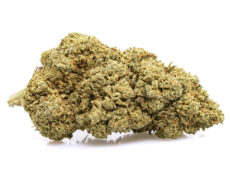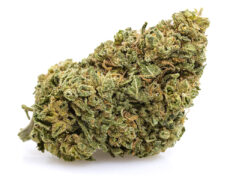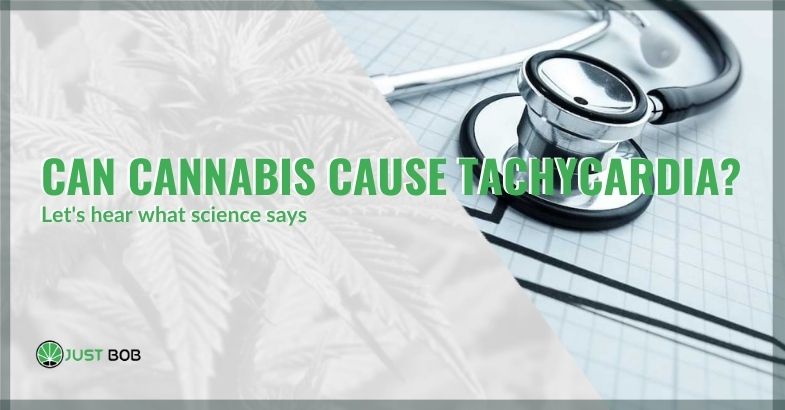Modified on: 19/04/2024
CANNABIS AND TACHYCARDIA: THE OPINION OF THE EXPERTS
Cannabis use can cause both positive and negative effects in those who take it, depending on a number of factors.
Which?
-
 SMALL & BIG
SMALL & BIGBUBBLEGUM
Starting from: 1,25CHF/gIndoor | CBD – CBDA <22%
Grams3 5 10 20 50 100 -



DO SI DOS
Starting from: 2,00CHF/gIndoor | CBD – CBDA < 19%
Grams3 5 10 20 50 100 -



ROYAL GG#4
Starting from: 2,30CHF/gIndoor | CBD – CBDA < 40%
Grams3 5 10 20 50 100 -



GORILLA GLUE
Starting from: 2,90CHF/gIndoor | CBD – CBDA < 20%
Grams3 5 10 20 50 100
Let’s start with the presence of THC, the quintessential psychotropic substance capable of triggering, in some cases, cardiovascular system problems, such as tachycardia.
So, does this mean that CBD cannabis is not for the faint of heart?
Well, not exactly. In this article we will try to understand why.
How cannabis affects the heart (general news)
Improper cannabis use can have a variety of common side effects, from the milder, such as red eyes, dry mouth, or cravings, to the potentially more unpleasant, such as anxiety, paranoia, and short-term memory problems.
These side effects and the way that cannabis affects the heart and cardiovascular system are related to the modulation of the so-called endocannabinoid system, which affects a wide range of bodily functions such as hunger, pain, sleep and energy, just for example.
I’ll explain.


The main active chemicals in cannabis, cannabinoids, can activate receptors that control the endocannabinoid system in the body, changing the function of these receptors and related systems, including the cardiovascular system.
In fact, according to some researchers, interactions of the endocannabinoid system with the autonomic nervous system appear to be the driving force behind the adverse cardiovascular events reported from cannabis use.
Let’s try to understand why.
Also Read: Live Resin Cannabis Concentrate: What Is It Really About?
Cannabis and cardiac complications: the substantial difference between THC and CBD in the appearance of tachycardia
An increased or irregular heart rate, also known as tachycardia, can be a side effect of cannabis use. In fact, smoking cannabis can cause a 20-100% increase in heart rate for a couple of hours or more after use.
This is believed to be due to a widening of the blood vessels, which is also responsible for the red eyes that occur when using cannabis.
At higher doses, marijuana can also cause a drop in blood pressure, leading to dizziness and lightheadedness.
Who is primarily responsible for these effects?
Tetrahydrocannabinol (THC), the quintessential cannabinoid in cannabis: it is a psychoactive substance that has psychotropic effects and can cause a state of dependency in those who take it.
In support of this, some of the recent studies conducted in the United States have found that heart rhythm abnormalities, such as tachycardia and atrial fibrillation, can occur within an hour of smoking THC-containing marijuana.
According to other studies, tetrahydrocannabinol can also:
- accelerate the heart rate;
- increase the oxygen requirement of the heart;
- alter the walls of the arteries;
- contribute to increased blood pressure when lying prone.
But that is not all.
According to some studies, chest pains, heart attacks, heart rhythm disturbances and other serious heart conditions are associated with carbon monoxide poisoning, a substance found in both tobacco and marijuana.
It goes without saying that the risks are increased for those who already have heart diseases. In fact, we know that in these cases, smoking marijuana can lead to heart attacks, as well as an increased risk of stroke and heart failure in people with heart disease.
On top of that, a widely cited (though fairly outdated) report claims that inhaling cannabis smoke with pre rolled joint and ingesting THC increases heart rate by 20-50% from baseline.
But there is good news.
Research has also shown that as tolerance to cannabis increases, the severity of side effects often decreases. This means that side effects commonly seen with inhaled cannabis, such as increased heart rate and decreased blood pressure, are not as common in regular users.
That’s right, you read that right.
It should also be noted that almost all studies on the risks of cannabis use are based on the inhalation of marijuana and that as more and more people prefer other methods and types of cannabis, these risk assessments need to be updated.
In other words, as with other cannabis side effects, the effect on heart rate can be partly attributed to the act of smoking itself.
But there is no need to make a bunch of all the grass.


Potential benefits of cannabis for the cardiovascular system
CBD, or cannabidiol, one of the other chemicals found in cannabis, does not have the psychoactive effects typically associated with THC. Which means that it does not cause the same effects as the previous one, on the contrary.
In fact, studies reviewed by the American medical group have shown possible links of the effects of CBD with:
- decreased blood pressure;
- reduction of heart rate;
- the decrease in inflammation responsible for the narrowing of the arteries that can lead to heart disease and stroke.
One study argues that a single ultra-low dose of THC before ischemia is a safe and effective treatment that reduces ischemic myocardial damage. This means that cannabinoids can help reduce damage to the heart after a heart attack.
In particular, cannabidiol can help reduce inflammation associated with ischemic heart disease. CBD also has cardioprotective and neuroprotective effects that can reduce the chances of a heart attack or damage from a heart attack or stroke.
But there is more.
Cannabis contains many cannabinoids, terpenes, and flavonoids that can help reduce stress, inflammation, and hypertension (high blood pressure).
Also read: Malta has also legalized the recreational use of cannabis: here’s what happened
Conclusions
In this article we have seen what science thinks about the correlation between cannabis and tachycardia.
In summary, the inappropriate consumption of marijuana with high THC levels can cause some undesirable effects on the cardiovascular system, especially if it is not smoked regularly.
On the other hand, Cannabidiol has been shown to be a very important cannabinoid for reducing stress, inflammation and heart rate.






